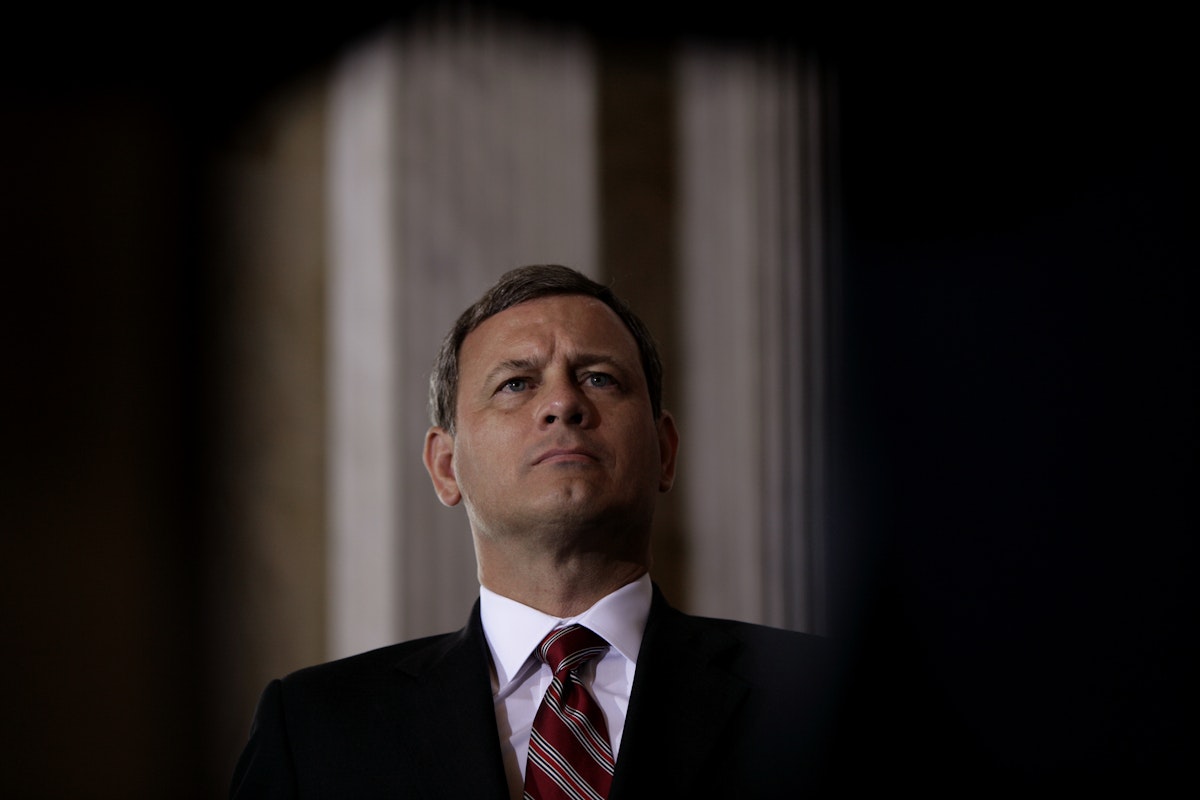
Still, the court’s three Trump appointees—Neil Gorsuch, Brett Kavanaugh, and Amy Coney Barrett—have joined with Thomas and Samuel Alito to blast past Roberts in a dramatic lurch to the right. It’s an understatement to say that Roberts is no liberal, but he’s not like his new colleagues either, who appear determined to uproot every liberal or even moderate precedent of the last century. In the most notorious decision of recent years, 2022’s Dobbs v. Jackson Women’s Health Organization, Roberts actually agreed with his five conservative colleagues that Mississippi’s restrictions on abortion should be upheld; but the chief didn’t think it was necessary to do what Alito’s decision did: overturn Roe v. Wade and 50 years of precedent reaffirming that landmark. Roberts’s plaintive separate opinion reads like an old fogey’s complaint about the new kids who won’t respect their elders. “Surely,” he wrote, “we should adhere closely to principles of judicial restraint here, where the broader path the Court chooses entails repudiating a constitutional right we have not only previously recognized, but also expressly reaffirmed applying the doctrine of stare decisis”—the rule of precedent. Thomas, now the senior associate justice and the leader of the combative quintet running the court, snapped back in his own separate opinion in Dobbs that he was just getting started in undoing the court’s history, targeting the court’s decisions protecting the right to purchase contraceptives, to engage in private consensual sex, and to same-sex marriage.
As chief justice of the United States, Roberts has a grandiose title, but his actual power over the court is modest, especially now. His only formal authority is to assign opinions but only when he is in the majority. Now that there are five justices to Roberts’s right, they can form a majority and control opinions without him. For example, in Dobbs, Thomas, as the senior associate justice in the majority, assigned the opinion to Alito. The chief justice also has informal authority over the administration of the Supreme Court, which never used to generate much controversy. But now, the court’s processes are also demonstrating the limits of Roberts’s power. In a series of reports, ProPublica revealed that Thomas (and to a lesser extent Alito) have effectively been on the payroll of politically active, conservative billionaires. What’s more, Thomas has been a featured guest at events for donors to the Koch brothers’ political activities, which include much conservative advocacy before the Supreme Court. This blatant corruption has drawn attention to the Supreme Court’s decision to exempt itself from the ethics rules binding on all other federal judges. These disclosures have prompted a cascade of bad publicity and increasing demands for the court to start policing itself or for Congress to impose ethical rules on the justices.